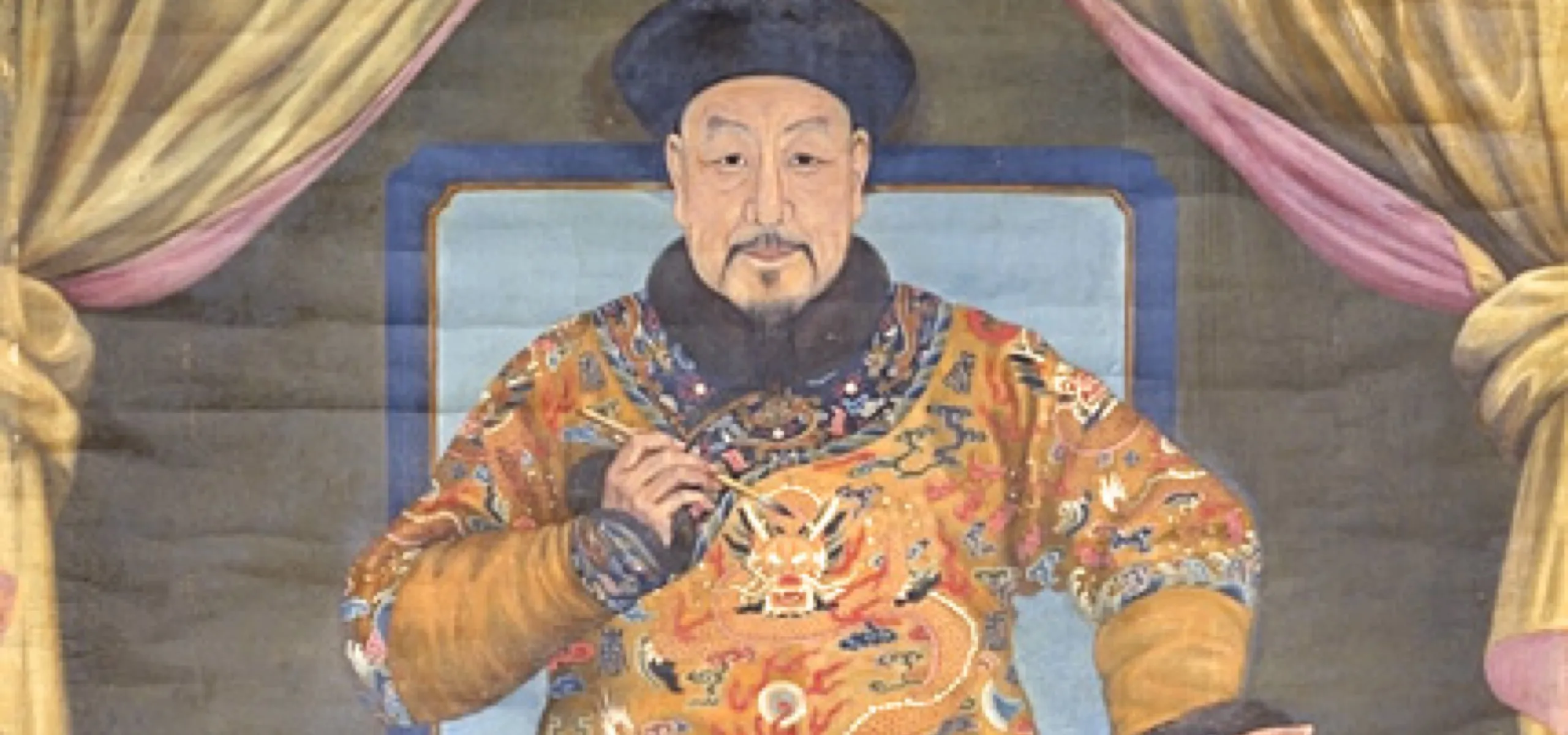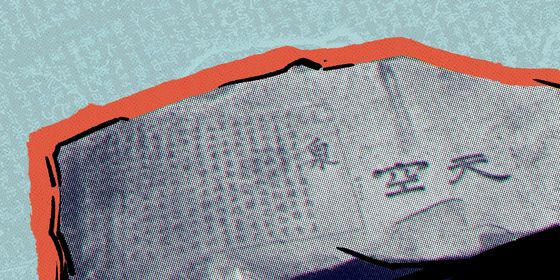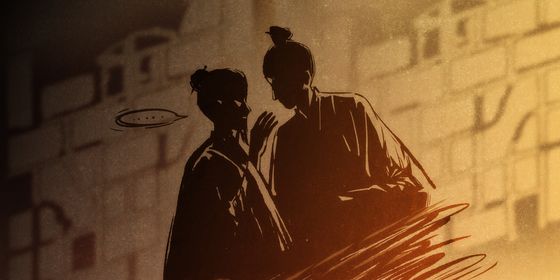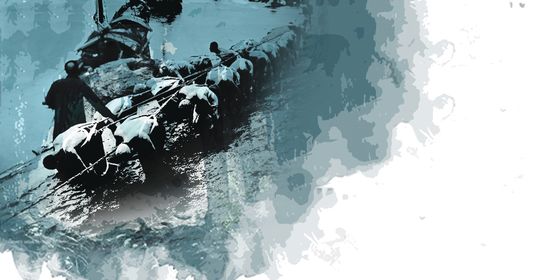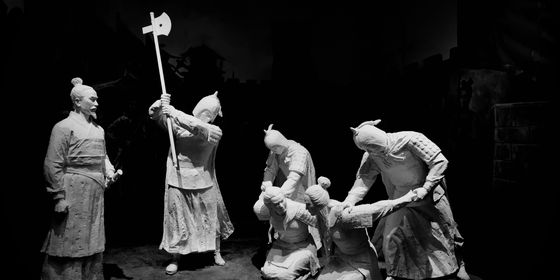The longest-lived ruler of the Qing dynasty wrote 43,000 poems in his lifetime, most of them bad
If you ask a Chinese person who was the most successful poet in Chinese history, the answer will most likely be one from the Tang dynasty (618 – 907), the golden age of Chinese poetry: the “poet-immortal” Li Bai (李白), known for the fantastic themes and playfulness of his works; the “poet-sage” Du Fu (杜甫), who wrote realistic poems about this chaotic time in history; or Bai Juyi (白居易), whose low-key, near-vernacular style made his verses understandible even to uneducated people, and whose works are enjoyed by readers in foreign countries like Japan and Korea.
But when it comes to being the most prolific poet, the Qianlong Emperor of the Qing dynasty (1616 – 1911) has all these Tang luminaries beat. One of the longest-lived monarchs in Chinese history, the Qianlong Emperor had 43,000 poems to his name by the time he died at the age of 88, meaning he allegedly wrote 1.3 poems each day on average (by comparison, the 18th century’s Complete Tang Poems (《全唐诗》), China's largest collection of Tang poetry, contained around 49,000 poems by more than 2,200 poets). “Alleged” is the key—as it’s not clear the emperor penned a single poem attributed to him, and he was definitely more concerned with quantity than quality, to put it mildly.
It was not rare for ancient Chinese emperors to write poems. Li Jing (李璟), the second ruler of the Southern Tang state during the Five Dynasties and Ten Kingdoms period (907 – 960), and his son and successor Li Yu (李煜), are both recognized as great poets.
But unfortunately, hundreds of years on, no one could say the same of the Qianlong Emperor, except for the Son of Heaven himself: The emperor was very proud of his poetic achievements, once saying in his late years: “At the age of nearly 90, I have created as many poems as that of the poets of the whole Tang dynasty. Isn’t that a legend in the literary world (予以望九之年,所积篇什几与全唐一代诗人篇什相埒,可不谓艺林佳话乎)?” Qian Zhongshu (钱钟书), a famous literary scholar and writer of the 20th century, commented on the Qianlong Emperor’s poems in his On the Art of Poetry (《谈艺录》):The Emperor Gaozong of the Qing [Qianlong] wrote poems like he was writing essays, using many unnecessary auxiliary words. It makes people sick. (清高宗亦以文为诗,语助拖沓,令人作呕。)”
From the emperor's oeuvre, one poem called “On Flying Snow (《飞雪》),” is included in primary school textbooks today. It goes like this:
One piece, another piece, and another piece;
Two pieces, three pieces, four, five pieces;
Six pieces, seven pieces, eight, nine pieces;
All fly into the flowering reeds and disappear.
If it weren’t for the last line, one wouldn’t know this was meant to be a poem. But this final line may not even have been written by the emperor himself. Some folktales say it was the official Ji Yun (纪昀), a well-known writer in the Qing dynasty, who finished the poem after the emperor wrote the first three lines; others say it was official Li Yong (刘墉).
Other readers found this poem very similar to a work by Zheng Banqiao (郑板桥), a painter and calligrapher living in the same time as the Qianlong Emperor. Zheng’s poem was called “On Snow (《咏雪》)”:
One piece, two piece, three, four pieces;
Five, six, seven, eight, nine, ten pieces;
One thousand pieces, ten thousand pieces, countless pieces,
All flying into the plum blossoms and cannot be seen.
Since Zheng and the emperor were contemporaries, it’s hard to say who wrote their poem first. But most people who subscribe to the plagiarism theory believe the emperor copied Zheng, as it would have been suicidal to plagiarize an emperor in ancient China.
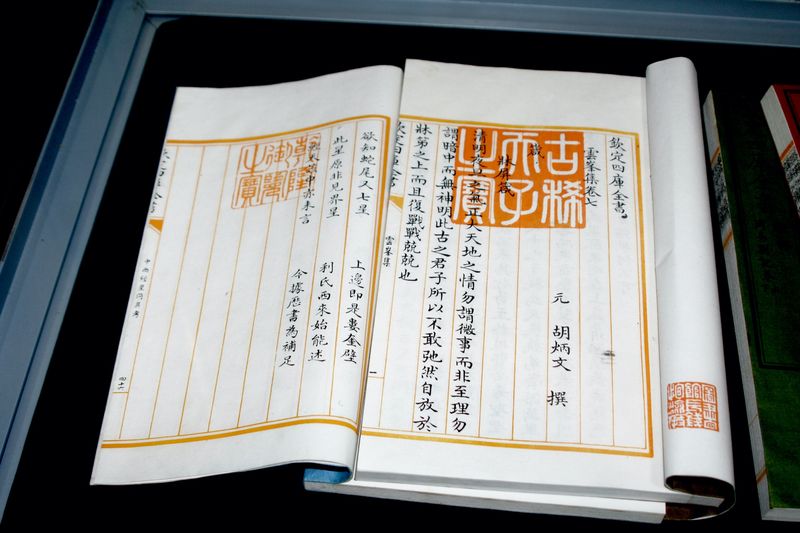
The Qianlong Emperor's personal seal on a copy of the Complete Library of the Four Branches of Literature, a bibliography completed under his reign. (VCG)
Another of the Qianlong Emperor’s poems, describing cucumber, is famous for being unpoetic:
It is the best ingredient on the plate in Beijing;
I tasted it lately in February, but how can I give it a review?
Weighing down the trellis, and embellishing the fence, it looks so beautiful,
The rural landscape contains true feelings.
Besides bad writing and plagiarism, the Qianlong Emperor was also suspected of hiring ghostwriters. According to the Unofficial History of Manchu Qing (《满清外史》), a collection of folk tales and anecdotes about the dynasty compiled by Tian Jia (天嘏), a writer living in the late 19th and early 20th century, court official Shen Deqian (沈德潜) ghostwrote a lot of poems for the emperor, and thus was favored by him. When Shen died, his executors found he had collected all the poems he wrote for the emperor into an anthology of his own. The emperor was very angry and embarrassed, so he ordered a complete search of Shen’s estate and a confiscation of all his property.
It’s not clear how much of the Unofficial History is true, and how much fiction. But the emperor himself admitted he didn’t mind using ghostwriters. In the second year of his rule, the Qianlong Emperor published a volume of poetry named The Complete Works in Leshan Hall (《乐善堂全集》), and wrote in the preface: “From now on, even if I have new works, some might be created by officials (自今以后,虽有所著作,或出词臣之手,真赝各半).”
In ancient China, writing poetry was an important marker of being an educated man. The Qianlong Emperor, who was also an avid collector of art and calligraphy, seemed to be extra keen to prove himself as not only a capable administrator but a man of talent and taste. Perhaps his writing ability wasn’t any worse than most other emperors in history—he just exposed himself to ridicule by writing a lot, and boasting about his poor attempts.
The only question is, couldn’t the emperor find any ghostwriters who could write better poems?





